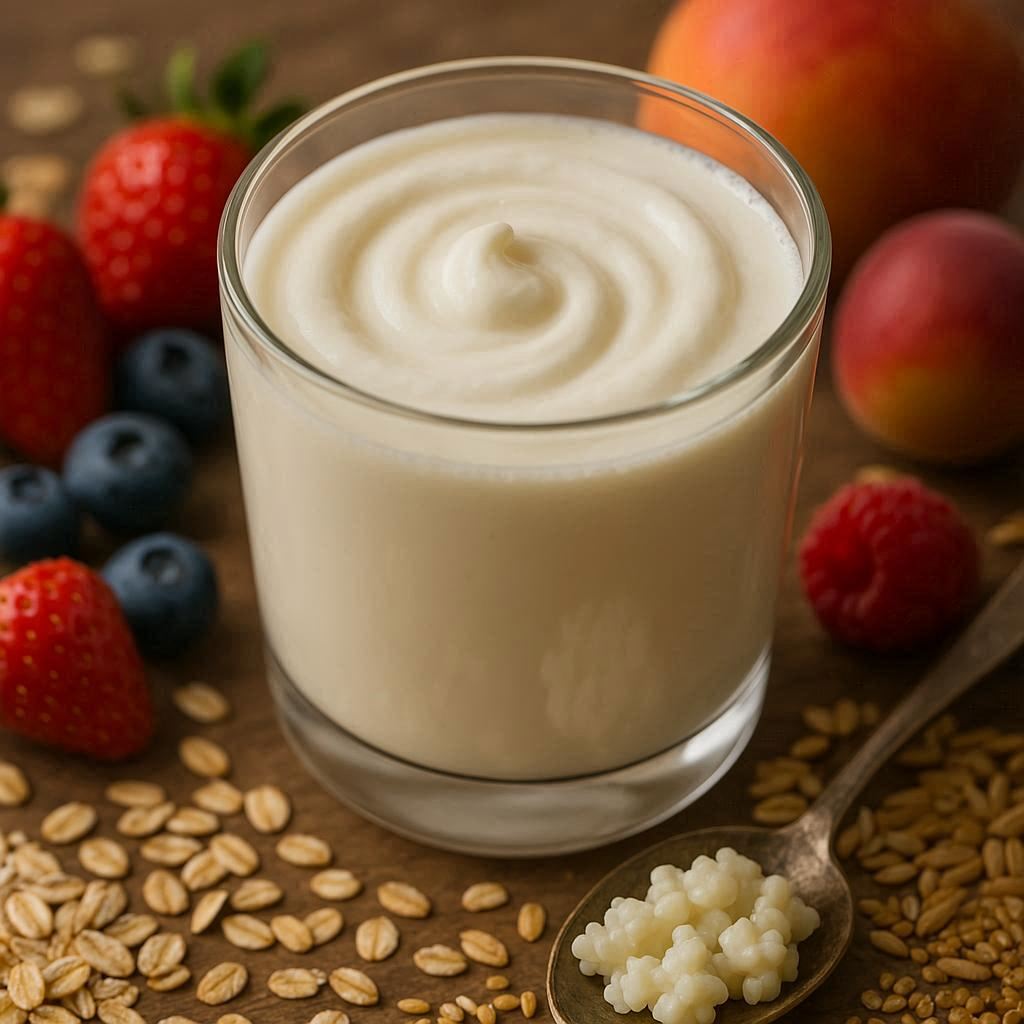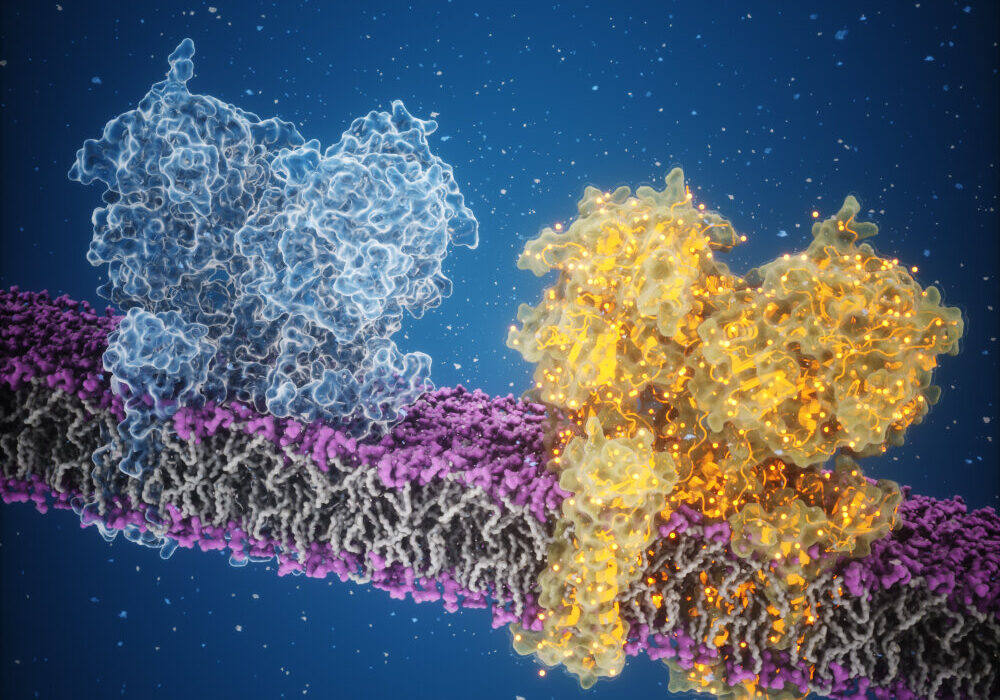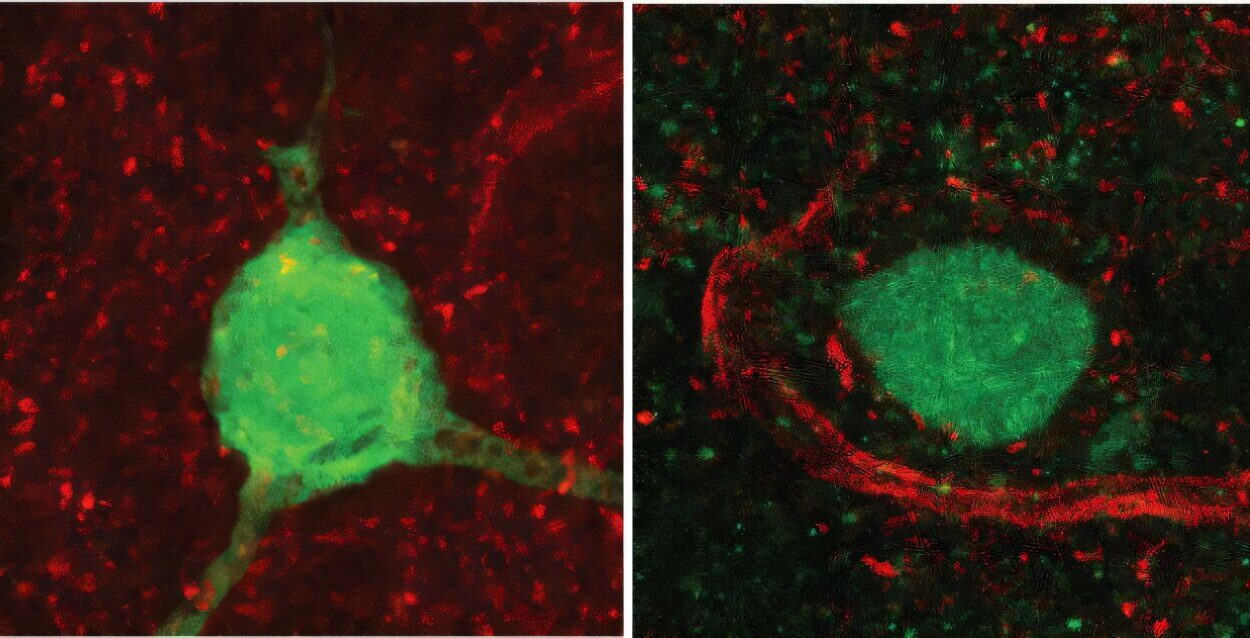In a world where shelves overflow with supplements promising stronger immunity, sharper minds, and longer lives, a groundbreaking study from the University of Nottingham offers a refreshing dose of clarity—and hope. Researchers there have discovered that when two specific dietary components are combined, they may create a synergistic effect far greater than either alone.
The research, published in the Journal of Translational Medicine, shows that a synbiotic—a combination of fermented kefir and a diverse mix of prebiotic fiber—produces the most powerful anti-inflammatory and immune-boosting benefits among three common dietary supplements tested. In a time when chronic inflammation underlies so many of today’s health problems, from heart disease to metabolic disorders, this discovery may mark an important step forward in understanding how food can truly become medicine.
Beyond the Buzzwords: What Is a Synbiotic?
The term synbiotic might sound like something from a science fiction novel, but it describes a simple and natural partnership. It combines two elements that have long been part of human diets: probiotics and prebiotics.
Probiotics are live beneficial microbes—like those found in fermented foods such as yogurt, kimchi, and kefir—that help maintain a healthy gut microbiome. Prebiotics, on the other hand, are special fibers that feed these microbes, helping them thrive and perform their vital roles in digestion, immunity, and inflammation control.
When combined, the two form a synbiotic—a perfect marriage between nourishment and nurturers. The microbes from kefir enter the body, while the prebiotic fibers act like fuel, encouraging them to flourish and produce beneficial substances called metabolites. Among these is butyrate, a short-chain fatty acid that plays a crucial role in calming inflammation and supporting immune function.
The Study That Sparked Global Interest
Led by Dr. Amrita Vijay at the University of Nottingham’s School of Medicine, the research aimed to explore how different dietary supplements affect markers of inflammation and metabolic health. Participants were divided into groups and given either omega-3 fatty acids, prebiotic fiber, or the new kefir-based synbiotic supplement.
The kefir and fiber supplement was provided by Chuckling Goat Ltd., a company specializing in traditionally fermented goat’s milk kefir. Kefir is no ordinary drink—it’s a living culture teeming with probiotic bacteria and yeasts that form naturally when live kefir grains are added to milk. These grains are small, gelatinous clusters that host dozens of beneficial microbial species working together in harmony.
Over six weeks, researchers monitored participants’ blood for systemic inflammatory markers—signals that reveal how much inflammation is happening throughout the body. Unlike localized inflammation, such as the redness from a small wound, systemic inflammation quietly spreads across multiple organs and tissues. When it persists chronically, it can contribute to diseases like diabetes, heart disease, and obesity.
Kefir and Fiber: The Dynamic Duo
At the end of the trial, the results were striking. While all three interventions—omega-3, prebiotics, and the synbiotic—led to some reduction in inflammation, the kefir-plus-fiber combination produced the most profound and wide-ranging effects.
Participants who consumed the synbiotic supplement showed the broadest drop in inflammation-related proteins circulating in their blood. These proteins serve as warning lights for ongoing inflammation in the body. A decrease in their levels indicates a shift toward healthier immune regulation and improved metabolic balance.
Dr. Vijay summarized the findings succinctly: “Our study shows that while all three dietary approaches reduced inflammation, the synbiotic—combining fermented kefir with a diverse prebiotic fiber mix—had the most powerful and wide-ranging effects. This suggests that the interaction between beneficial microbes and dietary fiber may be key to supporting immune balance and metabolic health.”
Why Inflammation Matters More Than Ever
Inflammation itself isn’t always bad—it’s a natural part of the immune response, the body’s way of fighting infection and healing injuries. But when it becomes chronic, low-grade, and systemic, it turns from healer to silent saboteur. This type of inflammation slowly damages blood vessels, disrupts metabolism, and weakens the immune system’s ability to distinguish friend from foe.
Modern life makes matters worse. Diets high in processed foods and low in fiber, chronic stress, lack of sleep, and sedentary lifestyles all fan the flames of inflammation. Over time, these factors create a biological environment ripe for disease.
That’s why the discovery that a simple dietary combination—fermented kefir and fiber—can naturally help calm this inflammation is so compelling. It points to a way of rebalancing the body’s internal chemistry without relying solely on medication.
The Secret Life of Kefir
Kefir may be one of the world’s oldest health foods, yet it’s only recently gaining recognition in modern science. Originating from the Caucasus Mountains, kefir has been consumed for centuries as a tonic for vitality and longevity. Its name comes from the Turkish word keif, meaning “good feeling.”
What makes kefir special is its microbial diversity. While most yogurts contain a handful of bacterial species, kefir can contain more than thirty—along with beneficial yeasts. This ecosystem of microbes works symbiotically to ferment lactose into lactic acid, giving kefir its distinctive tangy taste and creamy texture.
But the true magic happens inside the gut. When consumed, kefir’s living microbes interact with the trillions of bacteria already residing there. They compete with harmful microbes, strengthen the gut lining, and produce anti-inflammatory compounds. When paired with prebiotic fiber, their activity intensifies, leading to even greater health benefits.
The Role of Fiber: More Than Just Digestion
Fiber has long been known for its digestive benefits, but modern research reveals that it’s far more than a digestive aid—it’s a lifeline for the microbiome. Prebiotic fibers, found in foods like oats, onions, garlic, bananas, and legumes, serve as nourishment for the beneficial bacteria living in our intestines.
When these microbes digest fiber, they produce short-chain fatty acids, including butyrate, propionate, and acetate. These molecules reduce inflammation, improve insulin sensitivity, and even influence brain health. In other words, feeding your microbes well helps them take care of you in return.
In the Nottingham study, the diverse prebiotic fiber mix likely provided an optimal fuel source for the kefir’s microbes, allowing them to thrive and multiply. The result? A microbiome capable of producing more beneficial metabolites, keeping inflammation in check and enhancing metabolic balance.
Omega-3s: Still Important, But Not Enough Alone
The study also included omega-3 fatty acids, known for their anti-inflammatory properties and essential role in heart and brain health. While omega-3s did reduce inflammation markers, the effect was not as extensive as the synbiotic’s. This doesn’t diminish their importance—it simply highlights that a single nutrient, no matter how beneficial, may not address the full complexity of human biology.
Biological systems thrive on synergy. The body’s processes are interconnected, and the relationship between diet, microbes, and immune function is no exception. The kefir-fiber combination appears to harness this interconnectedness, offering a multi-dimensional approach to wellness.
A New Way to Think About Health
The implications of this research stretch beyond supplements. It suggests that health is not about isolated nutrients but about relationships—between foods, between microbes, and between our bodies and the ecosystems within us.
Our gut is home to an entire microbial world that constantly communicates with the immune system, the brain, and even our mood. Feeding it the right combination of living microbes and nourishing fibers may be one of the most powerful tools we have to restore balance in an age of chronic inflammation.
As Dr. Vijay and her team noted, this is just the beginning. The next phase of research will test the synbiotic approach in people with existing conditions related to inflammation, such as metabolic syndrome or cardiovascular disease. If the early findings hold true, this could reshape how doctors and nutritionists think about preventive medicine.
The Human Microbiome Revolution
Over the past two decades, scientists have come to understand that humans are not just individuals but ecosystems. The microbiome—a collection of trillions of microbes living in and on our bodies—plays an essential role in everything from digestion to mood regulation.
Disturbances in this microbial community are linked to autoimmune diseases, obesity, depression, and even cancer. The Nottingham study adds another piece to this puzzle, showing that by feeding and supporting these microbes strategically, we can potentially improve systemic health outcomes.
This is not just about adding more supplements to our daily routines; it’s about restoring harmony to the microbial symphony that sustains us.
Toward a Future of Synbiotic Medicine
Imagine a future where personalized nutrition isn’t about counting calories or cutting carbs, but about cultivating the right microbial balance inside our bodies. Synbiotics could become a cornerstone of that vision—customized combinations of beneficial bacteria and the fibers that feed them, tailored to each individual’s microbiome.
This approach could revolutionize not just wellness but medicine itself, reducing dependence on drugs that treat symptoms rather than causes. It could lead to new strategies for preventing inflammation-driven diseases, supporting mental health, and promoting longevity.
More information: The anti-inflammatory effects of three different dietary supplement interventions, Journal of Translational Medicine (2025). DOI: 10.1186/s12967-025-07167-x






